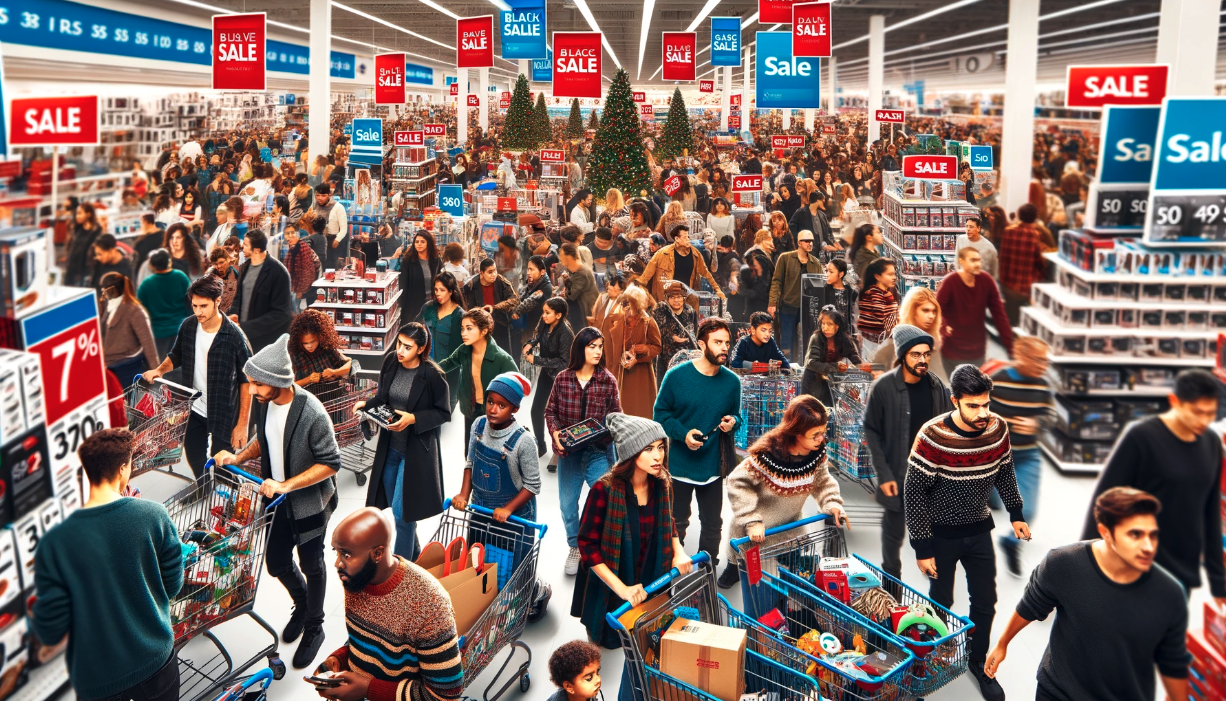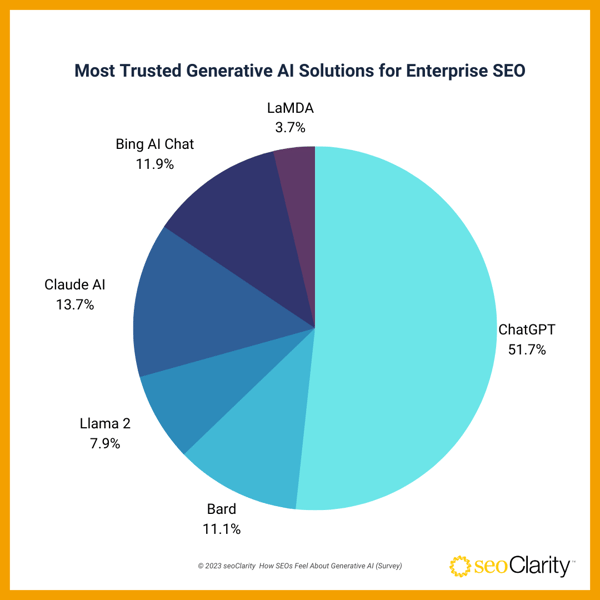OpenAI WTF, Green Black Friday, AI for SEO

OpenAI: WTF Just Happened?
No doubt many of you have followed the chaotic soap opera surrounding OpenAI's ouster of CEO Sam Altman and his reinstatement only days later. To recap, in a stunning, self-destructive move, the OpenAI board fired Altman last Friday. What followed over the weekend was a bizarre negotiation about immediately bringing him back. That negotiation collapsed on Sunday. Then, this past Monday, Microsoft CEO Satya Nadella announced Altman was joining Microsoft to lead a new AI research unit, as OpenAI customers were considering jumping ship and investors were preparing to sue the board. At the same time, 95% of OpenAI employees signed a letter demanding board member resignations and threatening to quit en masse. Microsoft said it was prepared to hire any and all OpenAI defectors (Salesforce too). It appeared Microsoft would acquire OpenAI's brain trust at cost. But in another crazy twist last night, OpenAI announced Altman's return as CEO with a new, larger board lead by former Facebook CTO and Salesforce co-CEO Bret Taylor. The old board is gone. WTF just happened?

Our take:
- Altman was in conflict with several board members for months. A faction that included OpenAI co-founder Ilya Sutskever ousted him for an alleged lack of candor, but "no malfeasance."
- The real issue appears to have been philosophical disagreement about how fast to develop AI/AGI and how aggressively to monetize.
- The (old) board badly miscalculated, failing to anticipate employee and investor loyalty to Altman. Before his announced return, there was a very real possibility the $86 billion company would simply collapse.
- There are lots of leadership lessons to be drawn from this crazy week.
How Green Will Be Black Friday?
Black Friday is still a couple of days away yet Black Friday sales are in full swing. The outlook this year is uncertain because retailers simply don't know how much consumers will spend, given inflation. Still, retailers are being less generous with sales this year – so far. Numerator predicts somewhat fewer "Cyber Weekend" shoppers than in previous years (~80%). National Retail Federation (NRF) survey data (n=8K+) suggest closer to 75% of US households. And there are other indications that overall numbers may be down because of consumer caution. Yet Salesforce argues consumers are simply waiting for more and better discounts, which will come. The NRF says search is top "source for gift inspiration" (44%), followed by family/friends (35%) and in-store (32%). After that come "wish lists" and social media. Amazon isn't mentioned, which makes us skeptical. Speaking of Amazon, the company will be experimenting with "shoppable ads" during its Black Friday US football broadcast, which will feature "QR codes [on screen] that viewers can scan to make instant purchases." After triple digit pandemic performance, it's unclear how much e-commerce will grow this year. Department store Kohl’s, for example, is shifting focus back to its stores, saying the digital side has underperformed.

Our take:
- As we've said many times, this distinction between stores and e-commerce is a false one. Consumers shop both places. And stores drive online sales.
- What consumers want, beyond discounts, is a mix of e-commerce and local inventory information. Google has been making strides in the latter category but still has a long way to go.
- Google has turned the SMB attribute into a shopping filter, which may also be a proxy for local inventory in many cases.
AI a Net Positive for SEOs
Next week's Near Media podcast features SterlingSky owner Joy Hawkins and Whitespark founder Darren Shaw discussing the impact of AI on Local SEO. It's an interesting and revealing discussion. For now, however, we'll revisit the results of an earlier survey (n=700 "SEO experts") by SEO Clarity on how generative AI is impacting the SEO industry. The survey found 86% of respondents had integrated AI into their workflows. Content generation and optimization, analytics and keyword research were the top use cases. The majority (at larger SEO firms) reported improved SEO performance. Interestingly, local SEO was not improved as much as other areas, such as content optimization, keyword research, on-page SEO and linkbuilding. SEOs reported efficiency gains and time savings with generative AI and plan to "invest more" in the future. ChatGPT is the most commonly used tool, with Bard in the hunt for second place, after Claude and Bing Chat/Copilot. Content accuracy and authenticity were top concerns, as was job security. Joy and Darren said AI didn't threaten job security of any of their teams, although hiring could slow in the future because of increased productivity.

Our take:
- These surveys, including a similar one from iPullRank, are directionally interesting but fairly high level. They don't get into many specifics.
- The podcast discussion I referenced offers some very specific local SEO use cases (content development, review analysis, SAB pages, etc.)
- There are numerous local applications for AI. But this survey found "local SEO optimization" to have the the lowest performance gains, interestingly.
Recent Analysis
- Local Review Landscape: Insights from Whitespark's GBP Analysis
- Near Memo episode 135: Google’s new search features, Whitespark: reviews counts by category, fake review enforcement failures.
Short Takes
- Deep dive into Google's algorithm based on antitrust docs.
- Localizing website content with ChatGPT.
- Google testing longer local justifications from third parties.
- How Google Maps turns 2D into 3D images in Immersive View.
- What has changed in Quality Raters Guidelines.
- Will human Quality Raters soon be replaced by AI?
- ChatGPT's voice feature now available to all users.
- Stable Diffusion announces generative AI video.
- FTC creates expedited process to address AI uses for fraud or deception.
- Google Maps now looks more like Apple Maps, may frustrate drivers.
- Google promotes "black owned" attribute with "black-owned Friday."
- Amex using QR codes to promote SMB Saturday.
Listen to our latest podcast.

How can we make this better? Email us with suggestions and recommendations.

